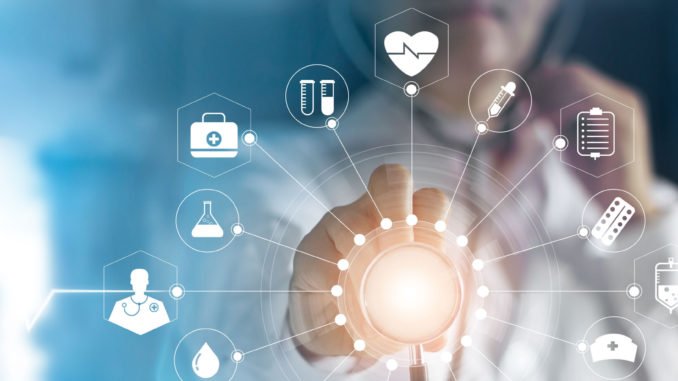Over the past few years, the growth of the healthcare sector has been phenomenal. And COVID-19 is proof of the advances in the healthcare sector. Despite no official vaccine being developed by any country around the world, the recovery rate has far surpassed the mortality rate.
Major credit for this remarkable feat goes to technological advances, like Artificial Intelligence (AI), in healthcare. AI has changed the way healthcare is perceived. No wonder, the healthcare AI industry was a US$ 600 million market in 2014, and is projected to become a US$ 6.6 billion industry by 2021.
If you are in a business that leverages the growing power of AI, then this article will show you the ways how you can use it to your advantage and why video marketing for healthcare has been garnering more reactions than ever before.
Are You Using Artificial Intelligence Yet?
Artificial Intelligence is playing a major role in the transition of healthcare from the present to the future. Be it diagnosis, keeping patient records, identifying potential customers, regulatory adherence, or automating complex administrative tasks, AI is everywhere. It is not only reducing the burden of mundane tasks but also increasing the accuracy and cost-effectiveness of existing processes.
So, if you are yet to make AI a part of your healthcare business, it’s time to ramp up your efforts. AI is the future and, video-based marketing can help you scale new heights.
Which AI Types Are Creating The Right Buzz?
AI is perhaps the most agile technology that can easily be adapted to the requirements of the healthcare business. The flexibility that AI offers is driving its popularity northwards. Out of all applications that AI offers for healthcare, the following four types are the most pervasive:
1. Machine Learning (ML)
Machine learning uses large-scale data, also known as Big Data, to create a model that can accurately perform tasks, segregate data, and predict future actions. It is trainable, maneuverable, and systematic.
The healthcare industry has been at the forefront of using machine learning applications to predict patients’ forthcoming illnesses and provide appropriate ways to diagnose diseases. ML makes the complex task of patient diagnosis easy and aids in long-term customer retention. Two subsets of AI, neural network, and deep learning, goes one step further in predicting the probability of diseases in patients by analyzing existing illnesses and other body variables.
2. Natural Language Processing (NLP)
As healthcare is a global subject, understanding existing patient records and treatment history is important to determine the future course. Natural Language Processing demystifies complex patient records, filters unstructured documents, and transcribes interactions to provide easy solutions to complex problems.
3. Electronic Health Record (EHR)
EHR is, in essence, a large repository of ‘if-then’ rules that have lost much of its relevance in the age of ML and NLP. Although still used for making time-saving and cost-effective decisions, it is mostly restricted to decision-making purposes.
4. Robotic Process Automation (RPA)
RPA is a rather simple process, in which computers are programmed in such a way that it can aid in image recognition, automated patient authorizations, billing, or entering patient details. RPA is one of the most popular processes that factor in readily available data to automate routine or mundane tasks.
Now that you are aware of the AI-based processes, which are changing the healthcare landscape, let us turn our attention to how using AI-centered healthcare marketing can help you scale your business.
What is the Best Way to Leverage AI for Healthcare Marketing?
Leveraging AI for marketing is the best thing to have happened to businesses in the healthcare sector. Check out the areas where you can deploy AI to make sure your messages reach the right audience.
1. Predictive Analytics
Predictive Analytics is nothing but segregating available data and using it to predict the future. You can use it to determine the cost of a project, viability of a business, classify patients based on history, give an edge to your video marketing campaigns, calculate staff requirements in the event of an anticipated surge in demand for healthcare, and any other purpose you wish to.
Predictive Analytics makes it easy for you to deploy your marketing strategy to areas where it matters the most. For example, if you program the system to automatically identify COVID-19 hotspots, you may make your marketing efforts much more targeted, resulting in higher patient footfall.
2. Voice Assistants
Together, Natural Language Processing and Voice Recognition Technology have made it easier to use automated voice assistants to perform tasks that earlier required more than one human, thereby reducing cost overrun. By automating tasks like surveying, instructing patients, and guiding them, you can retain customers and make healthcare accessible for all by eliminating language and verbal barriers.
Amazon’s Alexa is a classic example of how far AI can go to make life simpler for patients. For example, you may use Alexa to bring up the blood glucose reports or look for a nearby doctor. Innovations like these can not only make life easier for patients but also increase your business’s credibility to a large extent.
3. Chatbot
How many times have you visited a website that would automatically open up a window with an operator greeting you and offering you help? Well, that is what a chatbot all about. A chatbot offers assistance when a web visitor requires it the most, mostly during their first visit to the site.
A research report published by Juniper Research observed that, by 2022, chatbots will save as much as US$8 billion every year by 2022, up from US$ 20 million in 2017.
By using AI’s neural network, you can create a chatbot that greets the visitors to your website. You may play some of the best intro videos created with a free video maker like InVideo. Retaining a user is more important than attracting them, and a video can help you achieve exactly that.
4. Upload Videos on Popular Social Media Websites
Social media and video-sharing websites like Facebook, Instagram, YouTube, Snapchat, and LinkedIn are major lead-generation tools. Create videos that show how AI is enabling transformation in your healthcare business. By producing attractive videos and employing video marketing techniques, you can take your healthcare business to the next level.
Conclusion
Boston AI for healthcare marketing has revolutionized the way AI is driving the phenomenal growth of healthcare marketing. Read blogs, test your skills, and upgrade your marketing plan to give your business the edge that it requires today.


























